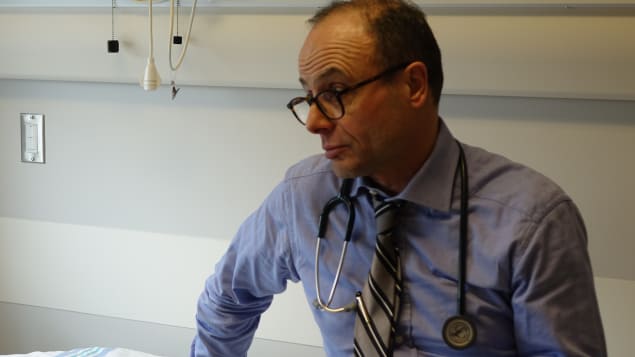
For cancer patient Jackie Aziz, medical cannabis has been a game changer. Ms. Aziz is currently receiving targeted therapy for a suspected sarcoma. She was given a range of medications to alleviate her treatment side effects, which include loss of appetite, nausea, anxiety, insomnia and pain. "It's not so much that they didn't work," she says, "but I was on so many medications that I ended up being hospitalized for constipation."
A spike in access requests for medical cannabis in 2017 from cancer patients like Ms. Aziz or from their health care providers was the impetus for a hospital-based pilot project to examine the feasibility of offering the therapy to a wider range of cancer patients. The project is led by Dr. Antonio Vigano, director of the Cancer Rehabilitation Program at the MUHC, and is supported through the RCN's Quality Improvements Initiatives (QI2) Fund as well as the Cedars Cancer Foundation. The first of its kind in Canada, the pilot was launched in January 2018 and ran until August.
After evaluating Ms. Aziz’s treatment side effects, Dr. Vigano offered her medical cannabis as an alternative. "It's helped a lot with appetite, anxiety and sleep," she says, "though it hasn't helped my pain which is neuropathic." Ms. Aziz is particularly glad to have been able to reduce the number of medications she's taking. She says her only regret is that she wasn't offered medical cannabis earlier. "It wasn't really spoken about at the hospital," she says.
Until recently, medical cannabis was only prescribed as part of a research project, and all the patients involved in Dr. Vigano's project were automatically enrolled in the study. The project consists of two half-day clinics per week at the MUHC that see about six patients per week. The study will assess resource requirements as well as the impact on symptoms, such as pain, drowsiness, shortness of breath and overall well-being.
 A lot of Dr. Vigano's patients suffer severe weight loss and chronic pain as a result of their treatments. Their symptom management options are limited and, as Ms. Aziz experienced, riddled with side effects. Cannabis is a good choice for many but access has been notoriously difficult. Dr. Vigano is pleased to be able to bring it out of the shadows through the current project and offer it to more patients. "Medicinal cannabis is not a myth or a taboo any longer; it is a reality for cancer patients at the MUHC, thanks to the Rossy Cancer Network and the Cedars Cancer Foundation," he says.
A lot of Dr. Vigano's patients suffer severe weight loss and chronic pain as a result of their treatments. Their symptom management options are limited and, as Ms. Aziz experienced, riddled with side effects. Cannabis is a good choice for many but access has been notoriously difficult. Dr. Vigano is pleased to be able to bring it out of the shadows through the current project and offer it to more patients. "Medicinal cannabis is not a myth or a taboo any longer; it is a reality for cancer patients at the MUHC, thanks to the Rossy Cancer Network and the Cedars Cancer Foundation," he says.
For cancer patients, consistent medical oversight of cannabis is important. Even after cannabis has been decriminalized, patients may be hesitant to try something whose potency is unverified and to do so while on other medication. They also may not be aware that there are hundreds of different cannabis products, with differing properties, some of which may cause problems with other pre-existing conditions.
Cannabis is now a reality that needs to be addressed and there is much research and training that remains to be done to bring healthcare professionals up to speed. Dr. Vigano sees this pilot project as an opportunity to offer hands-on cannabis prescribing training to healthcare providers, whom he invites to shadow him during clinics, while also educating patients.
